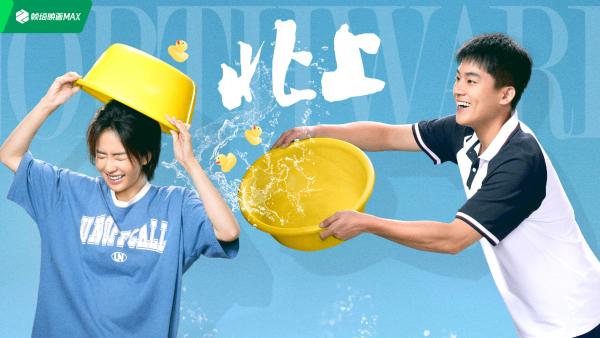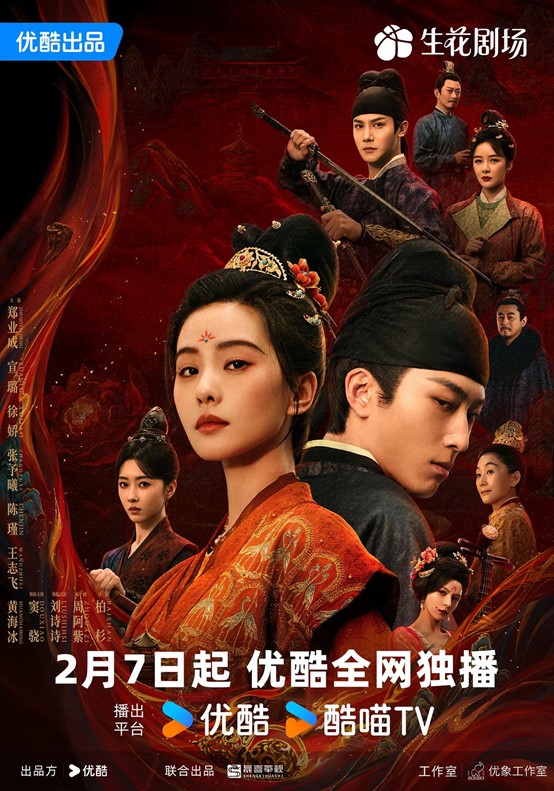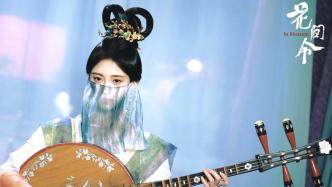
"Huajian Ling", a small and medium-cost ancient puppet drama, has achieved S+ results in its broadcast. It swept all major online drama lists with great momentum. It competed with various S-level major projects and became the No. 1 drama in 2024. A well-deserved dark horse episode of the first quarter.
On the day it aired, the platform’s popularity soared from 6,000 to 8,000; within 48 hours, the popularity of “Huajian Ling” exceeded 10,000. No one expected such results.
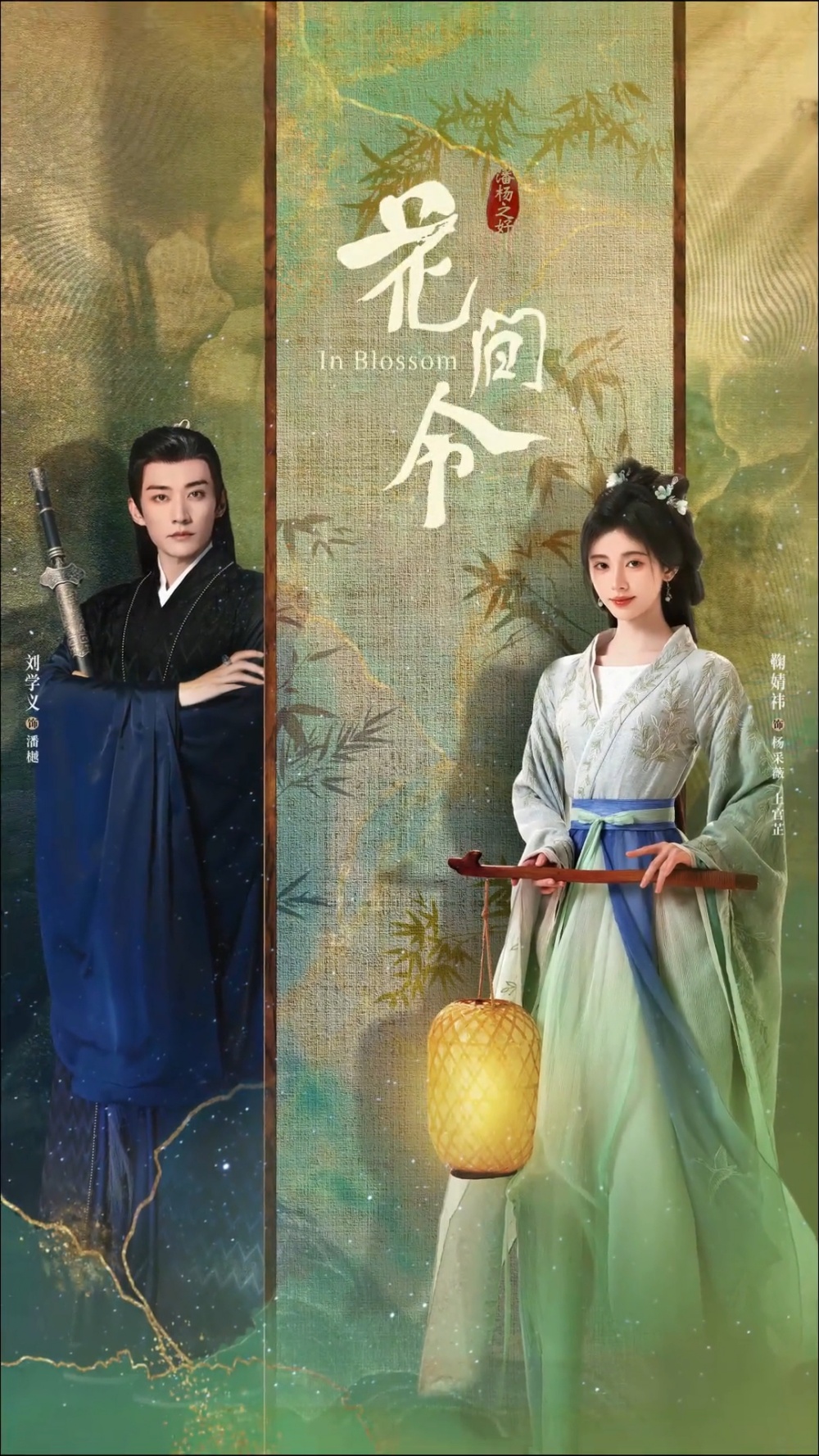
"Flower Order" poster
In this regard, screenwriter Yu Hailin said, "The starting point of this story is that I love this story very much. At that time, I did not focus on how the market would react." Chief producer Zhou Ji also said frankly, "We want to try to It’s my original intention to make some innovations in the genre of ancient puppets/suspense, tell an interesting story, and express some issues I’m interested in. It feels very comforting to be loved and recognized by the audience.”
Back in 2017, Zhou Ji was still working in the company and met Yu Hailin because of a project. We didn't have many interactions, but Yu Hailin was deeply impressed by Zhou Ji. As a producer, Zhou Ji is used to "challenging" screenwriters, often skipping politeness and going straight to the topic to ask a series of questions. Yu Hailin was asked angrily on the spot, but after the meeting he thought, "Hey, what she said seems to be right."
Yu Hailin said frankly: "The creative process of a screenwriter is very mentally and physically exhausting. Whether it is an outline or a script, when you have just completed a stage of writing, you are in a state of complacency and 'relaxation'. At this time, someone has to come and 'kick you' "That kick will make you emotionally upset, but rationally, her kick will help you improve your content standards."
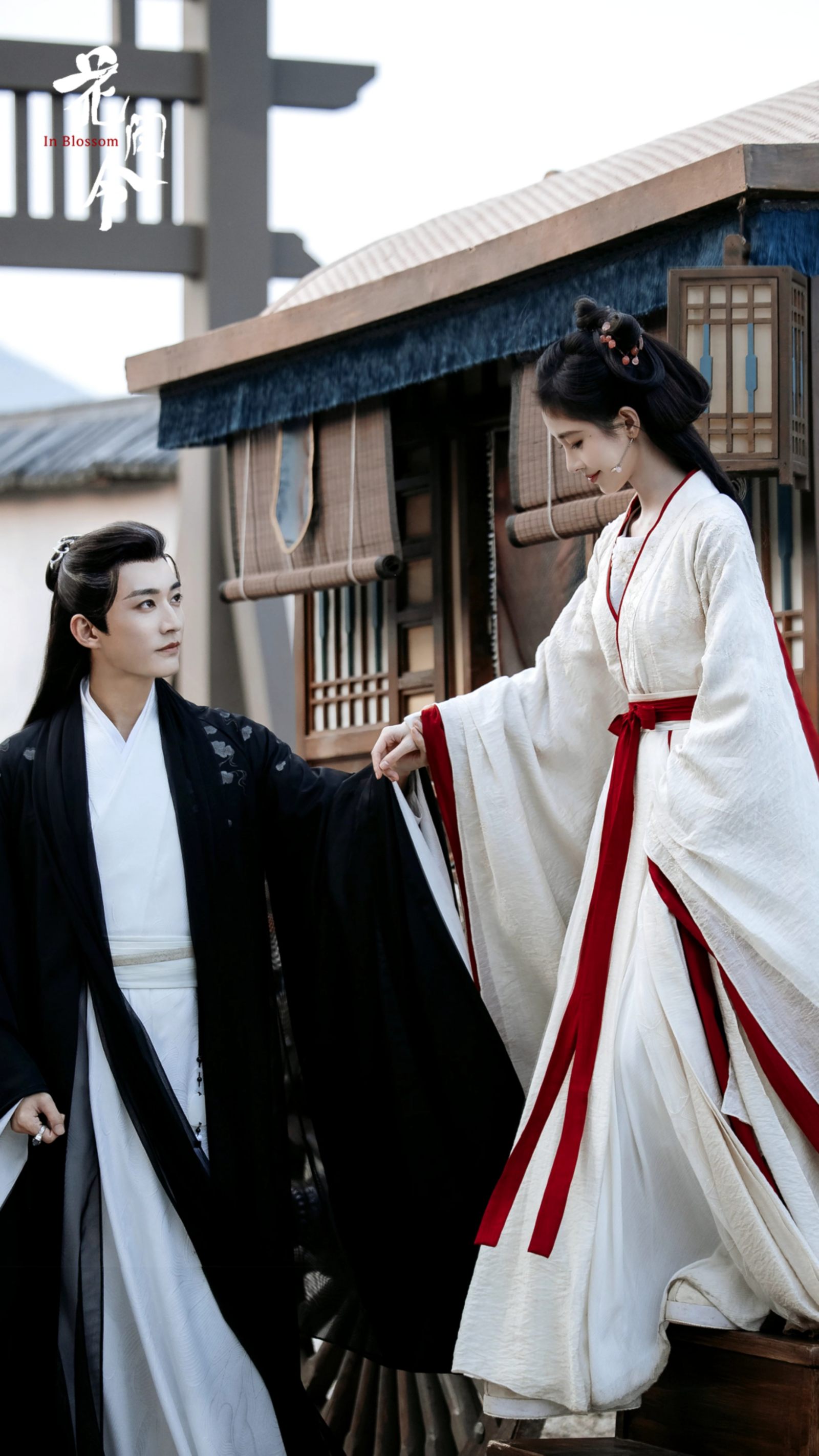
Stills of "Flower Order"
Later, Zhou Ji left the company, decided to do his own projects, and founded Zhudi Pictures. After learning about it, Yu Hailin came up with the original project plan for "Huajian Ling". Zhou Ji was quite surprised by this, and the reason Yu Hailin gave was that he recognized her aesthetics, but the real reason was, "Because Zhou Ji makes me 'uncomfortable'. Everyone has their own creative limitations and bottlenecks. She is The kind of producer who can constantly push you and challenge you, I think this helps me a lot.”
Yu Hailin believes that his creative habits are very emotional and he is more accustomed to relying on passion and inspiration. And Zhou Ji happens to be able to rationally split the screenwriter's creative impulses, and then list one, two, three, four, five possibilities, and then ask: Which one are you thinking of? Find out the source of impulses that the screenwriter cares about most, and then find an overall solution to rationalize these inspirations.
"Many people will raise superficial issues, but if there is no underlying logic or possible problem-solving ideas, it will only be superficial and bring the project to a standstill. But she has many ideas, and ideas will bring collision and vitality. This will allow the project to move forward healthily,” Yu Hailin said.
Zhou Ji listened and said with a smile: "I position myself as a producer who is more interested in creation and provides services to creators. In fact, I am very grateful to Teacher Yu because he has a very rigorous attitude towards creation and faces The discussion is also very open-minded, and only a little bit of my "observer's knowledge" can be useful. Let's challenge and encourage each other."
From the outline of the story at the end of 2019 to the official broadcast of the series in 2024, "Flower Order" was once like many original small projects of young teams, floating in the market waves and great changes, looking for reliable players in the vast industry. Partners have listened to the influx of revision opinions from all parties, and encountered market changes, epidemics, platform adjustments... Problems in every link may capsize the boat, but after many twists and turns and a long period of time, how did it survive from many setbacks and sinking into the sand? Stand out from the project and become an extremely lucky one. The answer will not appear by itself, but can only settle.
The following is a conversation with two young film and television creators.
【dialogue】
The setting of “face-changing” is what we focus on
The Paper: What was the process of creating the story "Flower Order"?
Yu Hailin: At the beginning, I didn’t think much about the theme of the story. I majored in Chinese as an undergraduate, and I admired Pan An’s mourning poems that pioneered the history of literature. So at the beginning, I wanted to tell the story around “death” and “not death.” The heroine dies at the beginning, and the hero completes the heroine’s “let go”. Heyang Heqing Haiyan"'s wish, "You die because of me and I live for you."
Later in the creative process, the theme was actually sublimated: everyone is a monster of the times, how to deal with themselves, how to grow up, how to coexist, and then how to live a life of their own.
The heroine Yang Caiwei has scars on her face, her job is unknown, and she is alienated from the crowd. These external factors are the reasons why she is regarded as a "monster"; while Pan Yue has "scars in his heart", based on his personal growth experience And character, if Yang Caiwei hadn't appeared, he would probably have gone down a darker path.
Moreover, the unit cases in the play are basically designed around this theme. Gu Shan, Shen Ci (Shen Yan), and Lu Erge have their own sad and deplorable qualities. The environment and fate have given rise to their evil thoughts, but they do do what they want. Being wrong, breaking the law, and eventually losing control and turning into a monster.
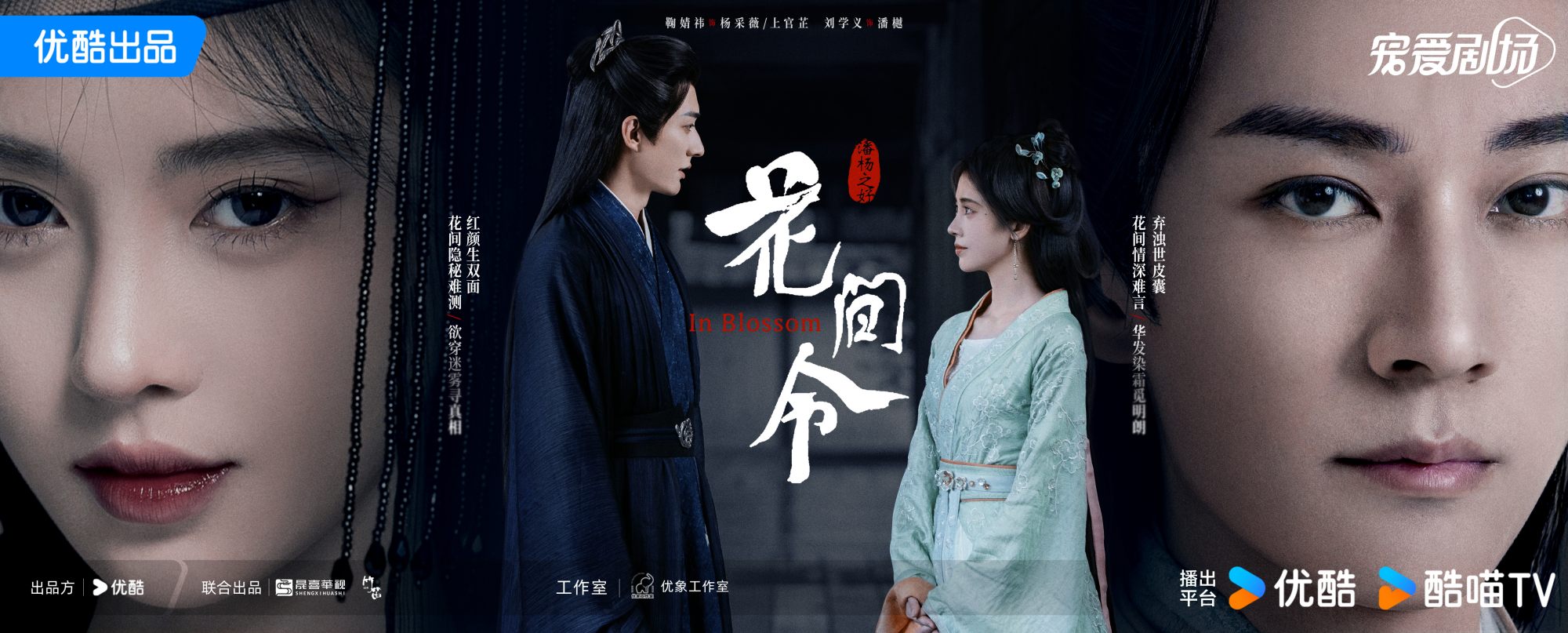
"Flower Order" poster
Zhou Ji: Our two core genres are romance and suspense. In the love line of "Pan Yang", the "face-changing" setting is what we focus on.
At first, I thought it would be relatively simple. She changed her face and identity, and the kind-hearted heroine disguised herself as a domineering young lady, which brought many obstacles to the relationship between the male and female protagonists. But slowly, we talked about more things.
Pan Yue and Yang Caiwei are undoubtedly typical childhood sweethearts, and we want to explore how these two people who were originally familiar and close can resist the changes brought about by time and growth. Pan Yue came over excitedly. He wanted to continue this relationship naturally, but found that Yang Caiwei's experience in these years was unknown to him, and she had changed; and Yang Caiwei also saw from Pan Yue's methods after her "rebirth" Yes, he has changed too. They have all changed, but they all have many characteristics that have not changed.
"Changing faces" is a test, but it also gives them the opportunity to get to know each other again through such an ultimate mask. In an emotional relationship, how to explore each other's sincerity and how to build trust is a topic that we find more interesting.
In terms of suspense, from the very beginning I recognized what Teacher Yu said about "monsters", so I set the tone very early on in the case part. I didn't make strong reasoning. If I had to say it, it would be more "social" and more focused. Personal emotions and destiny.
Heyang, as a "three no matter" stage, was set from the beginning, but the four major clans and the "anti-criminal gangsters in ancient costumes" were strengthened again at the end, making it complete. We also want to use this stage to make the story of "Pan Yang" slightly break away from the label of "ancient puppet" and find a more practical interface.
So the whole creative process is a bit like a process of locking in the tonality of the project step by step by adjusting the proportion of types.
How to view the controversy caused by the appearance of two actresses before and after "Face Changing"
The Paper: Zheng Hehuizi’s performances in the first two episodes attracted a lot of attention from the audience. The appearance of Ju Jingyi after the “face change” also aroused a lot of heated discussion and controversy.
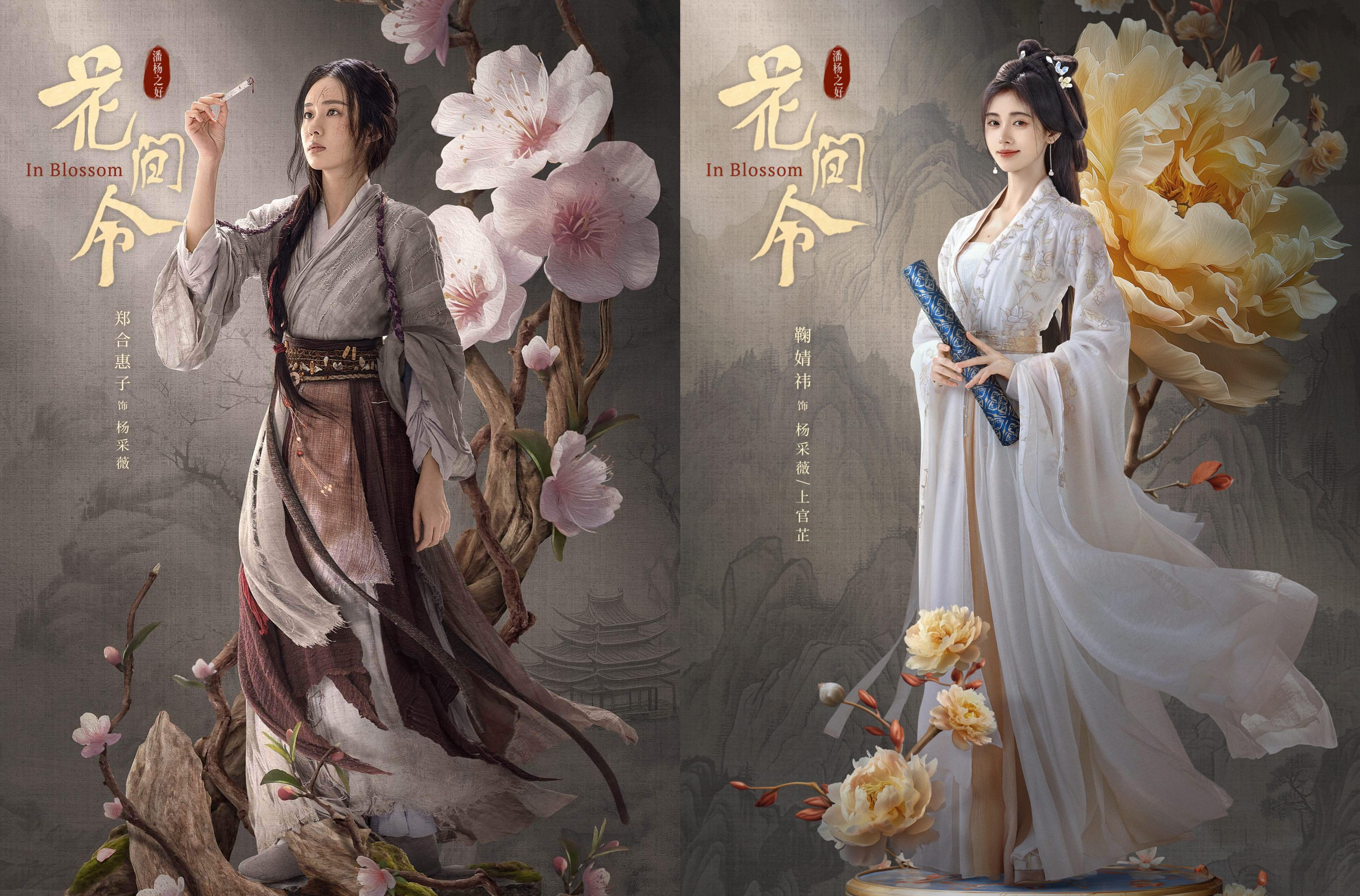
Zheng Hehuizi (left) and Ju Jingyi played Yang Caiwei before and after the "face change" respectively
Yu Hailin: In fact, we have often discussed this issue from the beginning of creation. Changing actors will inevitably affect the sense of substitution and the continuity of the narrative. There were some costume dramas in the past that had similar scenes, but the general audience acceptance was not ideal. So maybe no matter who plays the role, the plot setting will be determined, and this will most likely become a controversial point.
But we discussed it over and over, and finally decided to spend two solid episodes to create the characters and emotions of the male and female protagonists before the face change, because they are the only two who have a sincere relationship. The audience and the heroine have gone through this period together from not believing in it to gradually being attracted to it. A touching journey. After her face was changed and she was killed, when Pan Yue became the first suspect, she felt deeply betrayed and this sense of fate was established.
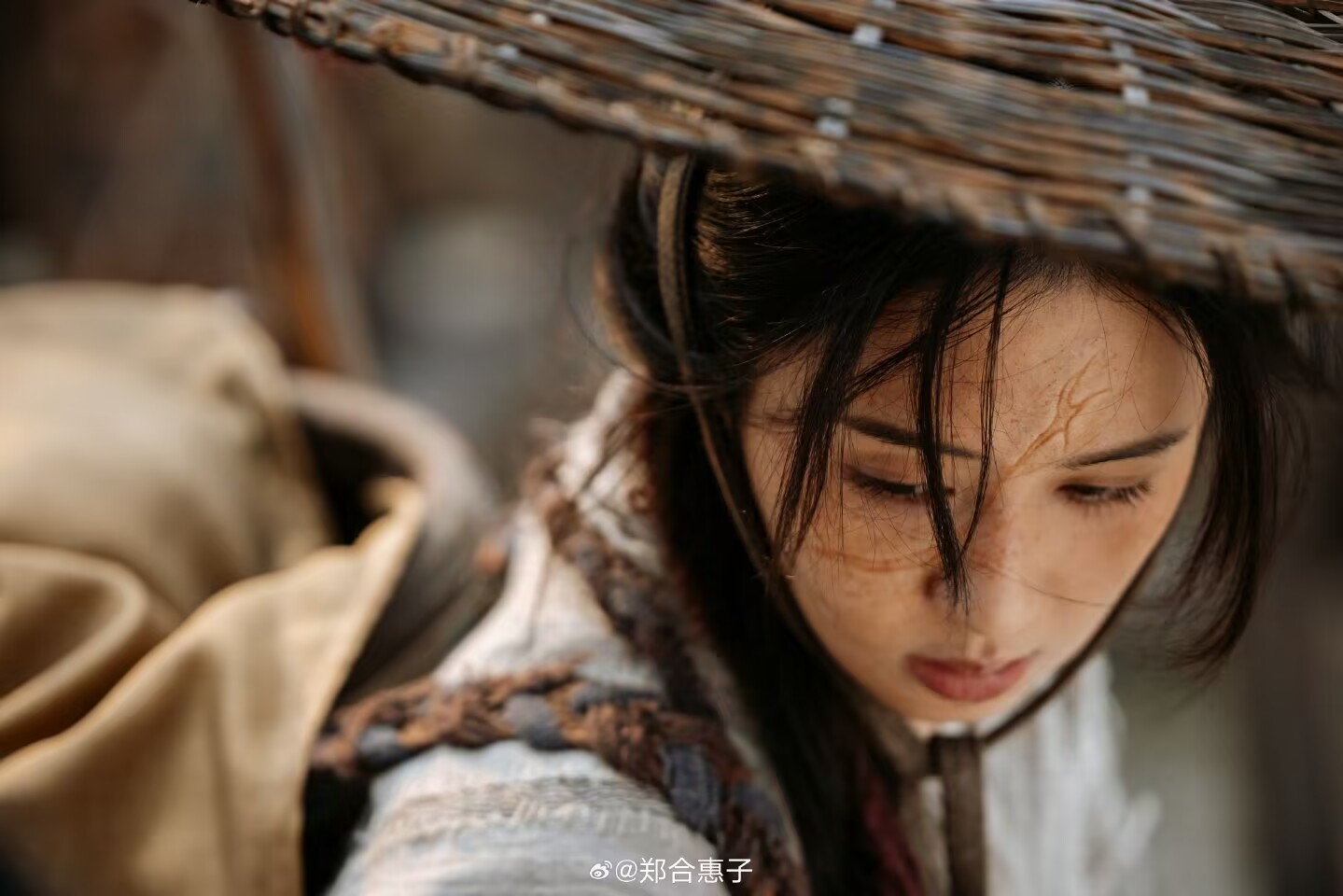
Stills of "Flower Order"
Yang Caiwei is a person with scars on her face but a self-sufficient heart. She has experienced huge changes and has seen too much of the warmth and coldness of people, but she still works hard to grow. She accepts her fate, but wants to actively help others, whether it is collecting the bodies of the down-and-out and burying them, or clearing the grievances of those who died in vain.
Therefore, in our character setting, if Yang Caiwei can survive in a "sin city" like Heyang, she should be sophisticated but not sophisticated. She has a stable core and some personality on the outside.
For example, in the scene, she pretends to be a ghost in a mass grave to scare the tomb robbers, and when she goes to the city later, she uses a skeleton to scare the children who bully her. She has seen these things too much, and she is not sad, but rather enjoying herself.
Yang Caiwei is an optimistic person in terms of color. She has compassion, but she is also interesting and open-minded, and does not feel sorry for herself. In a sense, she can be considered a bit of a "Wei and Jin style". In terms of these qualities, there is no doubt that Keiko's performance helped us stand up in the first two episodes.
Zhou Ji: We hope to create an image of a heroine with relatively rich layers. She will have two sides, she is calm and alert, and when it comes to emotions, she can be entangled or free and easy. Different scenes will also focus on portraying her different aspects and characteristics. The two actors have their own styles and personalities. Perhaps naturally, it will be easier for them to capture the dimension of the characters that is closer to themselves.
Secondly, as Teacher Yu said, if we want the audience to empathize with Caiwei after the face change, we must first make everyone like Caiwei before the face change. But once people like Caiwei before the face change, it is very likely that they will It will be more difficult to accept Caiwei after the face transplant, which is the difficulty of this project.
But I am still very grateful for all these discussions, which indeed brought us some reflections. Regarding "how to achieve the greatest degree of unity when two actors play the same role", we still lack experience and insufficient control during the shooting process. Some character emotions and details that can assist the continuity of the characters are not accurately presented. come out.
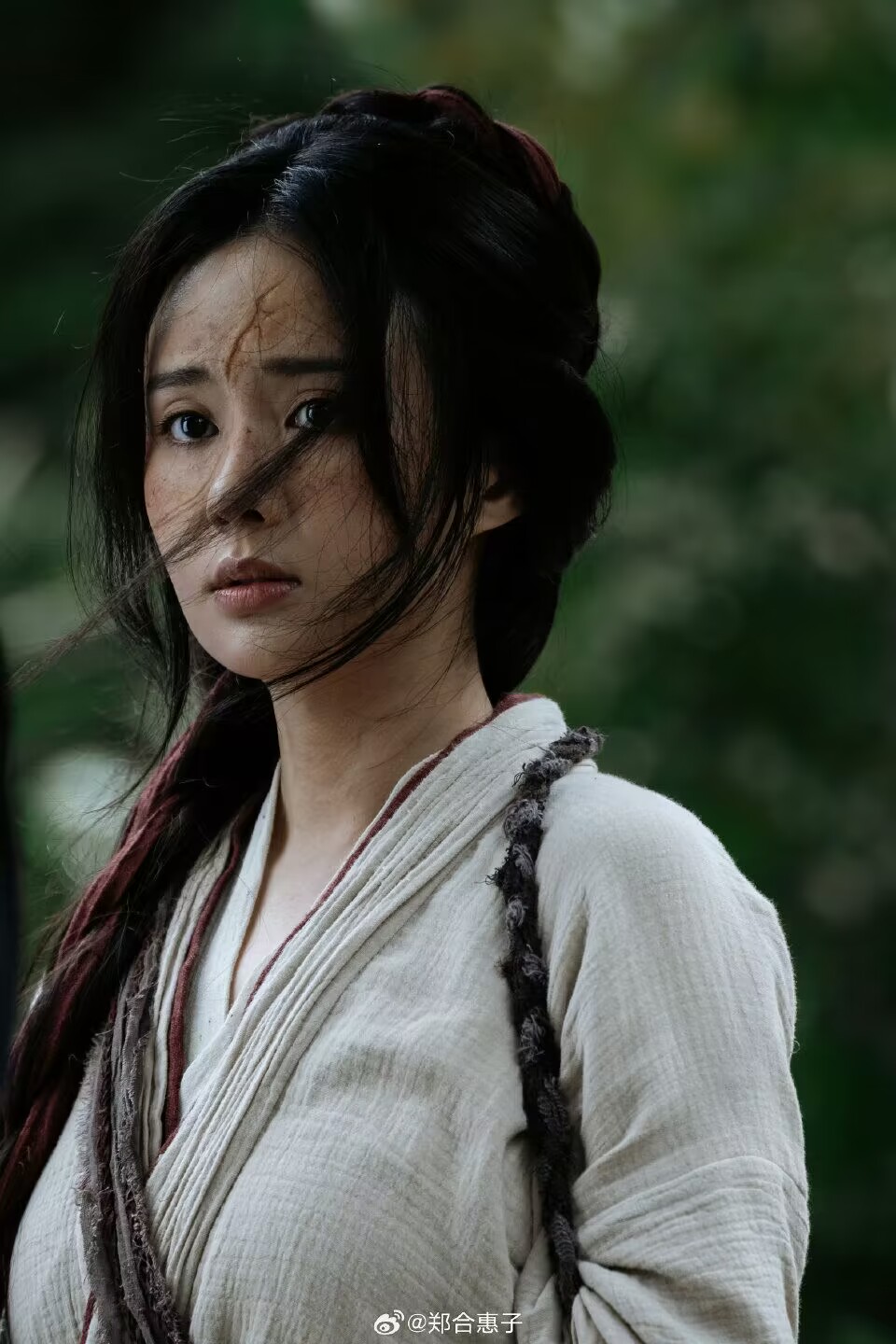
Stills of "Flower Order"
The Paper: Can you elaborate a little bit?
Yu Hailin: The scenes just after the face change are crucial. If the issue of character credibility is not dealt with well at this stage, it will only get worse in the future. In terms of text, we designed some connecting scenes to help unify the characters' front and back states, but unfortunately, some content and details may be missing due to shooting scenes, cycles, etc.
For example, in the third episode, Shangguan Lan came to Pan Yue's side. Caiwei faced the "murderer" Pan Yue for the first time after her face change. She was originally asked to scold Pan Yue while she was tipsy - even though she was "in danger", She is still a thorny woman, not in a state of patience and caution, not to mention that she is now Shangguan Zhi. With Yang Caiwei's intelligence, she can express her true anger through the eldest lady's "domineering". If this scene can be presented as a whole, then the two key points of "the coherence of Yang Caiwei's character" and "Caiwei's role as Shangguan Zhi" can be achieved better.
Another example is the scene where Pan Yue pretends to be drunk. The original design was for Caiwei to drag him back into the house with a sling like "carrying a corpse" to echo her own profession. We have done a lot of similar designs at the textual level, hoping to show Yang Caiwei's personality and anger under Shangguan Zhi's skin, as well as her inner PTSD when facing Pan Yue in the early stage, so that the audience can see that the two faces are one person.
Of course, we also know that from text to actual shooting, there will always be things that are difficult to achieve or are different. This is a pity in film and television creation, and it is also a point where we failed to better help the two actors, bringing I'm sorry for the controversy.
Zhou Ji: Because the preparation and production cycle is very tight, whether it is scripting or filming, there will always be points that we feel could have been done better after internal review. But knowing where the shortcomings are is already a very valuable experience for our young team.
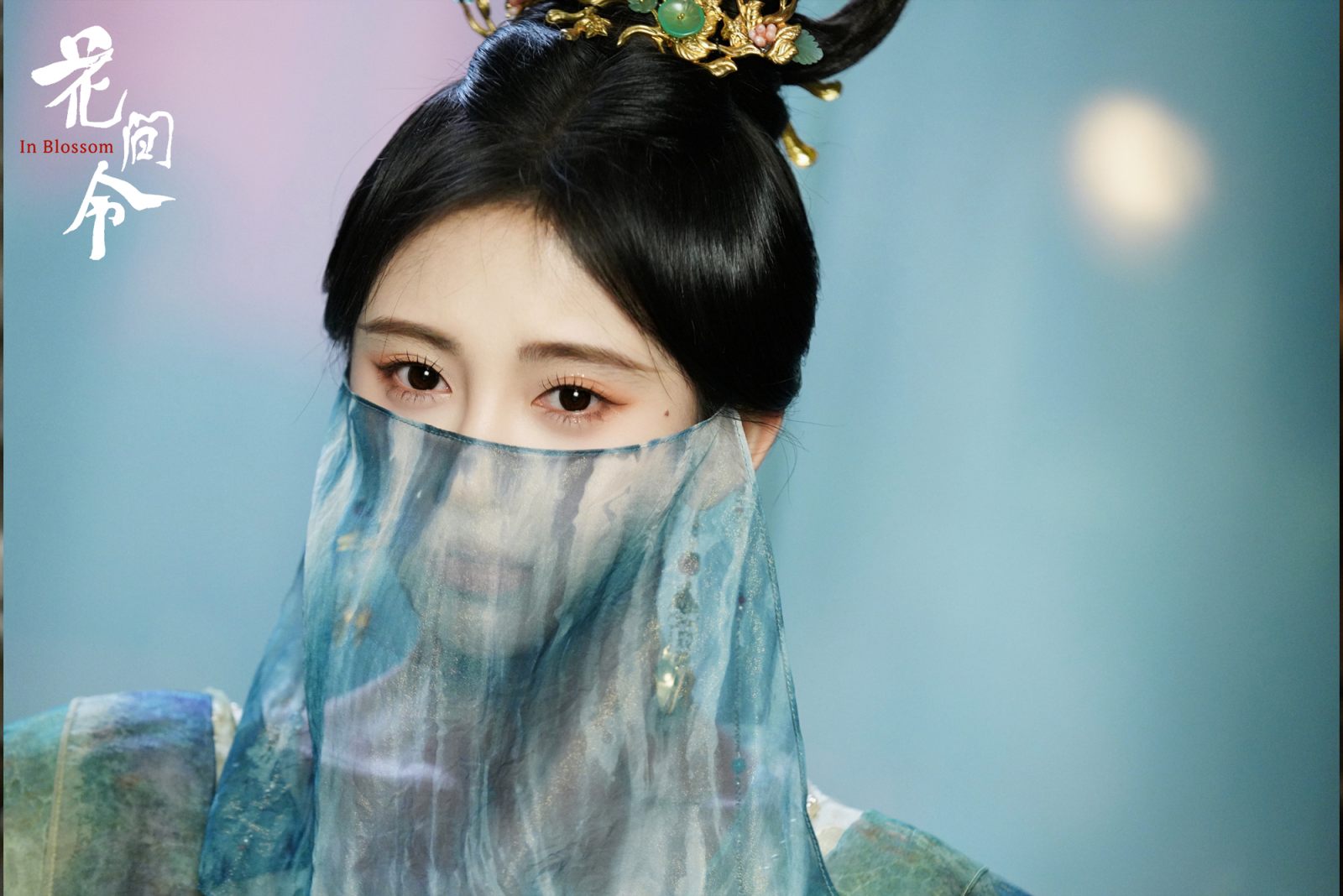
Stills of "Flower Order"
There is certainly nothing wrong with "mixing types" in itself
The Paper: "The Order of Flowers" stands out, to a certain extent, because its production quality is higher than that of similar works of the same level. In terms of quality, how does the team control it?
Zhou Ji: When Teacher Yu and I decided to cooperate, our common expectation was that the finalized script would be presented to the maximum extent in the video. Not distorting the original creative intention and presenting it accurately is one of my basic expectations.
Film and television work is a team art, and every link is important. Perhaps losses are inevitable, but the team is professional and there will be many complements and surprises. So first of all, the most important thing is to have partners with the same philosophy; secondly, I believe in the principle that if you seek the best, you will get the middle, but if you seek the bottom, you will not get it. Therefore, I always have a string in my heart, hoping that all work can be solved as early as possible, leaving the least amount of effort. Question for later.
In terms of work flow, the preparation stage is a link that I and Shengxi China Vision, as the film crew, focus on controlling. On the one hand, it is the integrity of the script, and on the other hand, it is to ensure that the creative teachers in all key links have a consistent understanding of the project style.
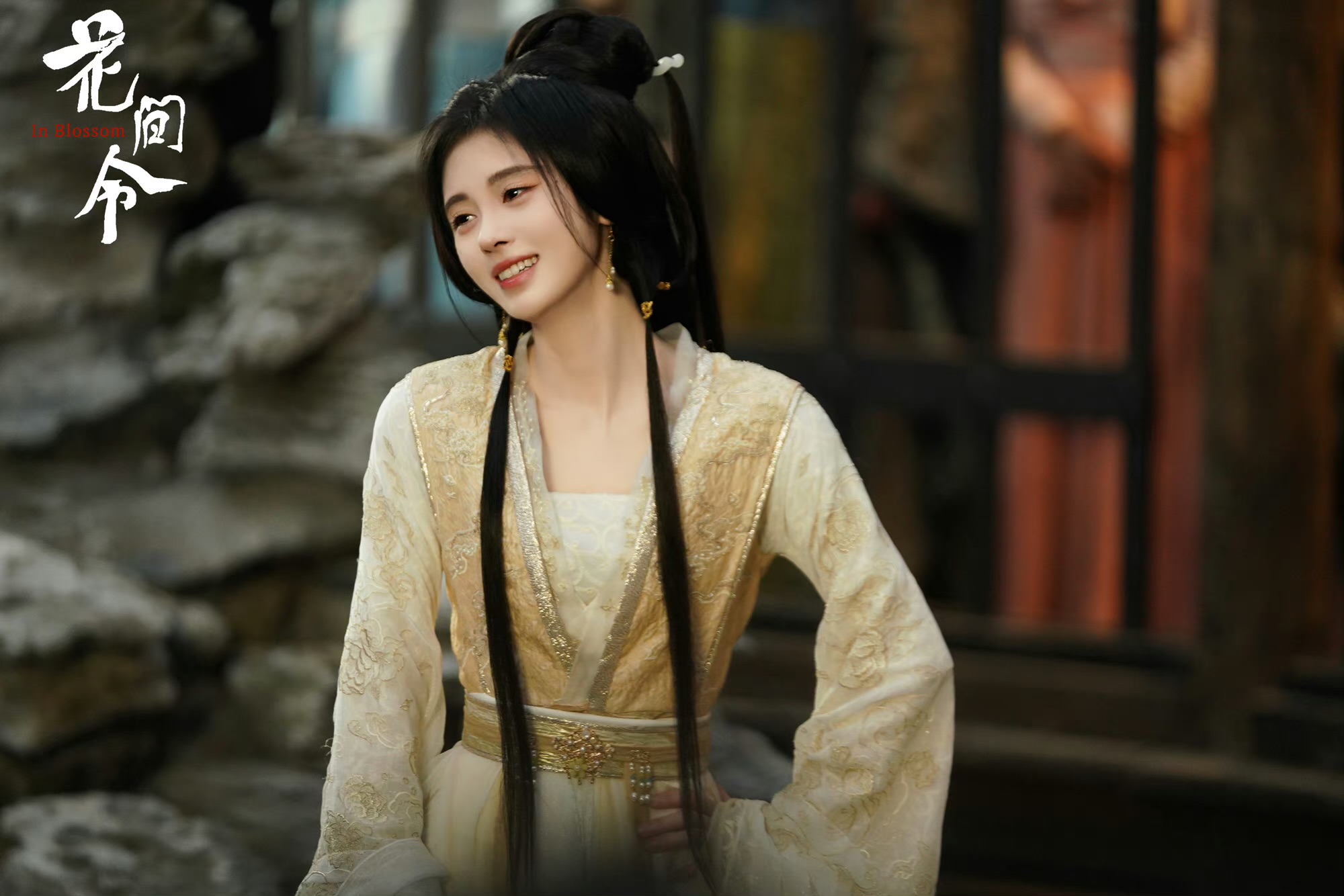
Stills of "Flower Order"
During the script stage, Teacher Yu and Teacher Zhong Jing would talk about our views on the scene, picture, and style from time to time. As mentioned before, every adjustment of the content is actually a gradual locking of the project adjustment from the textual level. sexual process. We wanted to get rid of the filter of ancient puppets. At that time, we basically locked in the tone of "Wei and Jin landing" - it should have the ancient charm and elegance of the Wei and Jin Dynasties and the love for the landscape, but also the pyrotechnic texture and people's livelihood of the small town of Heyang. It should have not only the spectacle of the case and the four major clans, but also the realistic romance of love and friendship.
When we officially entered the preparation stage, our ideas were relatively clear and we had some visual references. I feel particularly lucky this time. When I first communicated with the styling director Qian and the art director Dong Ge, I felt that everyone’s ideas were very consistent and the communication was smooth. In particular, I could feel their passion for this subject. Direction, there is a passion for creation, which is undoubtedly a great bonus.
The first round of communication with the director mainly focused on the style level. It was made clear that at the narrative level, we prefer the "character fate and plot direction" rather than the "sweet and sweet direction", which also led to a relatively clear definition of the image style. Position reference and reach consensus.
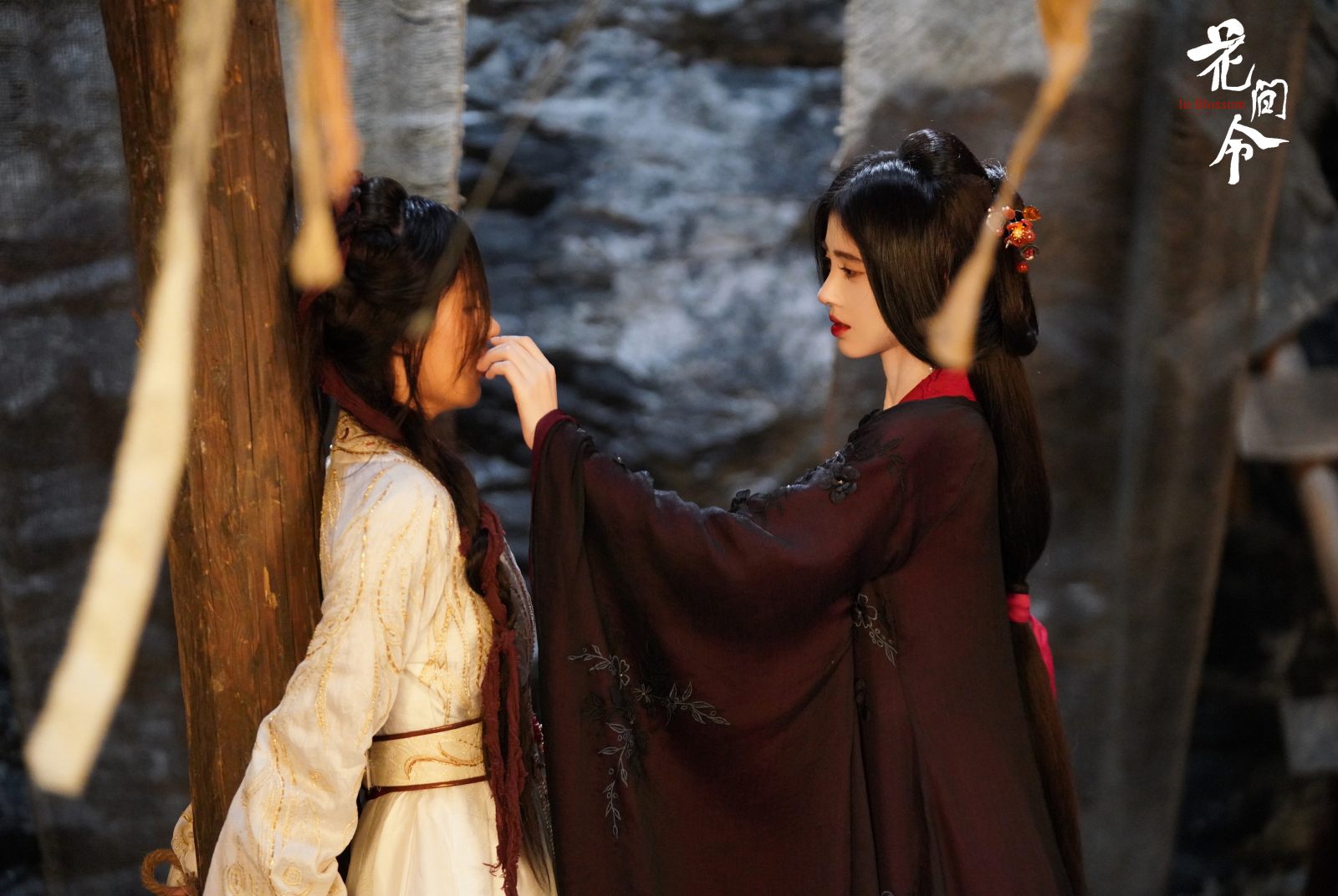
Stills of "Flower Order"
The Paper: As an ancient puppet, "Huajian Ling" has an obvious "mix of genres" feature. This is not only a direction that domestic dramas have been willing to try in recent years, but it is also a direction that can easily "overturn". Tell me what you think?
Zhou Ji: In my understanding, there is definitely no problem with "mixing types" in itself, but in the actual operation process, it is indeed easy to have errors in understanding the content. For example, in the project "Huajian Ling", our core face-changing setting occurs at the end of the second episode and the beginning of the third episode, but we need to let the audience feel the tone of our project in the first episode, and To achieve certain expectations, this must be done clearly at the beginning, otherwise it may lead to the so-called "ambiguous type" problem.
Yu Hailin: I think in the era of short videos, "mixing of genres" is inevitable. It is difficult for long series to capture the audience's attention as easily as in the past. For example, in "Flower Order" we integrated suspense and thriller elements into the love narrative, then it may bring more freshness and excitement to the audience, and the audience group it can reach may also be expanded.
I hope that everyone will be more and more open to original projects in the future.
The Paper: You two formed a creative team in the form of screenwriter + producer. Let’s talk about your working methods?
Zhou Ji: The way we work is that we should talk about everything without any taboos. We hope to talk about what needs to be discussed internally as much as possible. As long as there is still one party who has doubts, we will discuss it until everyone feels, "OK, this It is our most complete achievement at this stage.”
From an ideal point of view, such repeated mutual challenges will allow creation to reach a better state; from a practical point of view, only when we talk thoroughly internally, I fully understand what kind of content this is and why each choice is made, can we It should be better used as an outlet for external communication to so-called "carry some things."
I had a feeling during work observation before that many times people use different languages to say the same thing, but both parties feel that our ideas are very different. Many opinions sound serious, but when broken down, it may be that one party does not fully understand it, or it is not expressed accurately. Maybe in the end, fine-tuning the details of a few scenes can solve a problem that sounds subversive at first glance. Another situation is that the opinion itself is not very important, but after it is conveyed to the creative team, it becomes serious and even seems unsolvable.
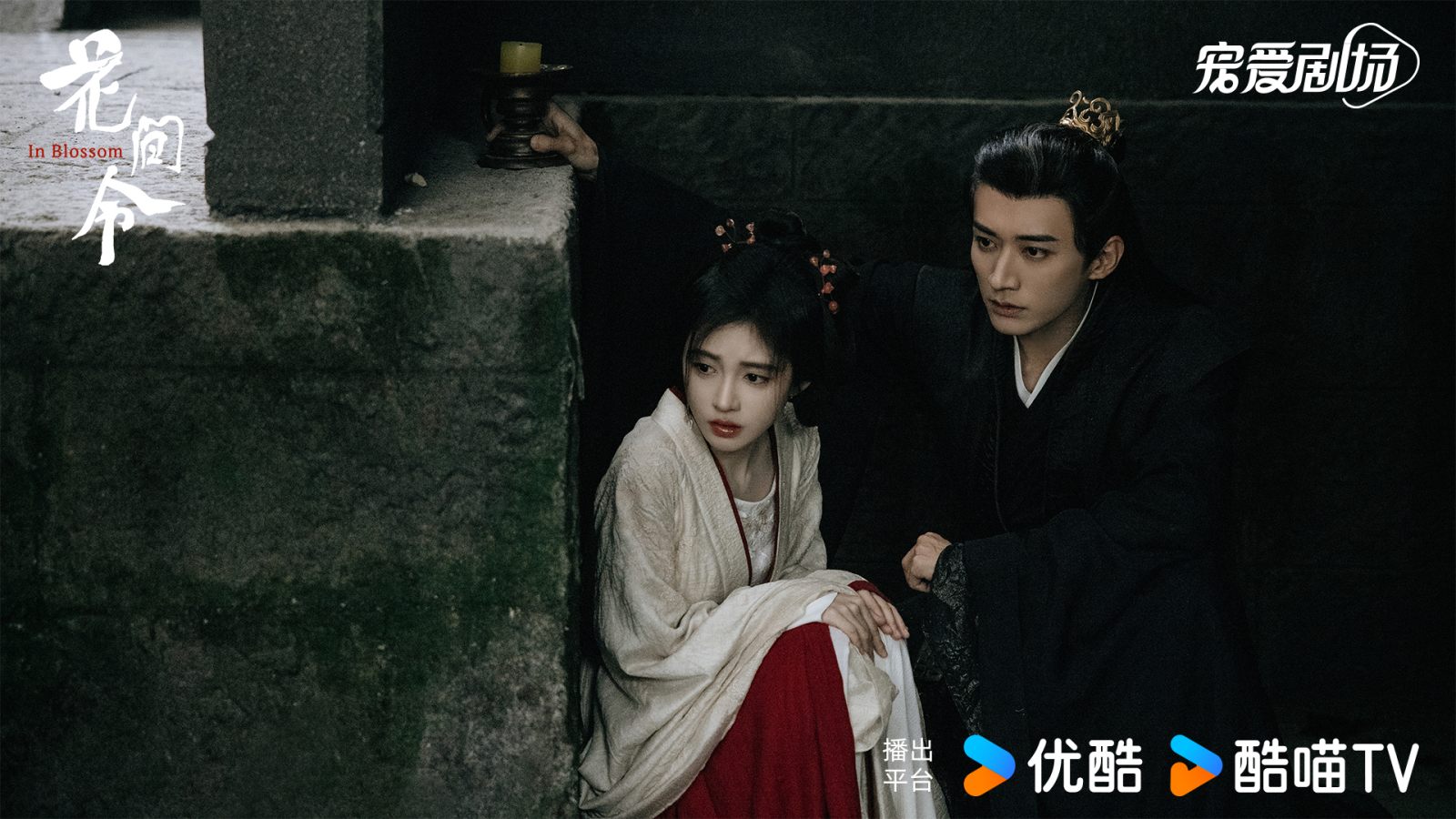
Stills of "Flower Order"
So when we fully question and challenge ourselves, when I face external communication, I can basically speak meaningfully. Why do I make this choice? What kind of derivative problems will such modifications cause? Which are the details and which are the underlying logic? Are there any aspects that have not been considered? I feel that through adequate communication, 70 to 80 percent of opinions can often be resolved.
After I have digested and understood the remaining 20 to 30%, I will directly tell Teacher Yu and Teacher Zhong: What kind of opinions I received today, I think it makes sense, you can feel it. The great thing about these two screenwriting teachers is that although creation is subjective, they can be detached and objective every time they face opinions. Many times there are even no external opinions, but they will take the initiative to discuss with me what they think can be done. Do better. Whenever this happens, Teacher Yu will turn around and say to me, "It's okay, don't be afraid of changing it, it will definitely look better if you change it this way."
Of course, there are also times when everyone has different ideas or does not fully understand each other, and there will be internal disagreements and fierce quarrels, but in the end a consensus that everyone is satisfied with will definitely be reached.
Yu Hailin: Teacher Zhou has a valuable advantage - she basically blocks all the firm and unimplementable opinions. The revision opinions that come to me consume less enthusiasm for the screenwriter's creation. In addition, Teacher Zhou has no "obsession" with self-expression, but really respects what the screenwriter writes. Most of her opinions are not damaging, but find a suitable development path based on the screenwriter's creation. Tacit understanding and trust are also gradually established in this way.
The Paper: In the current market, original projects, whether created or promoted, are much more difficult than IP adaptation projects. Why do you insist on being original?
Zhou Ji: I have a little bit of energy myself. Film and television projects may have many twists and turns and take a long time. In fact, it is very easy to give up. So why do I persist? What's the point of this story? How can I convince myself? I feel like I have to have feelings for this thing. It is my simple vision to work with partners who recognize each other to create a story that we all love.
The difference between original work and adaptation is that it is a highly independent and open creative state. And because it is difficult to create originality in one step, the construction of the entire story will go through several rounds of iterations. You can voluntarily and voluntarily find the meaning of telling this story bit by bit as the project grows. This meaning is not given by anyone. What we want for ourselves is important.
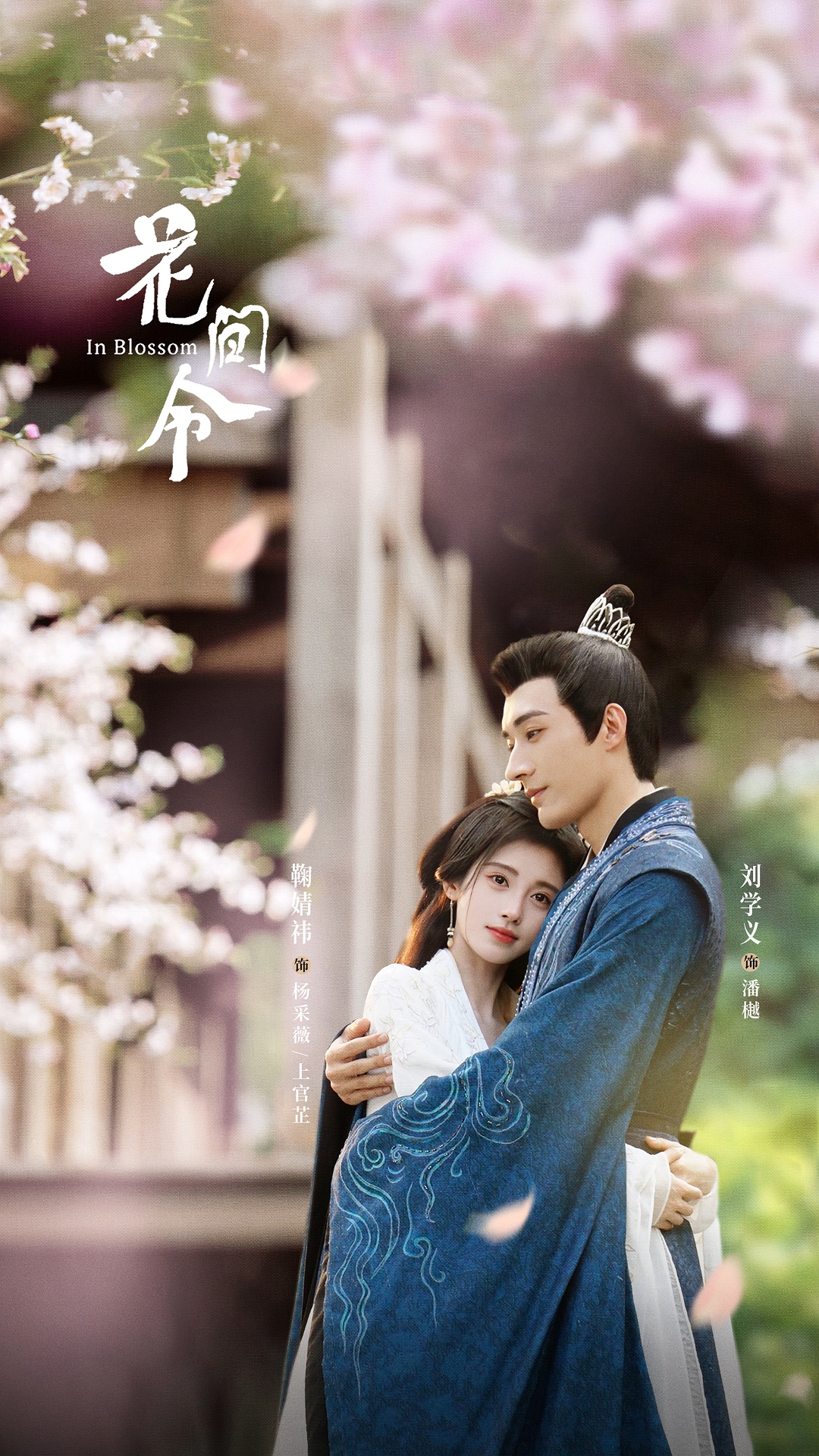
Stills of "Flower Order"
In fact, like "Flower Order", there will not be a very clear external voice telling us during the whole process: as long as we make any changes, we will definitely be able to complete this project. So after listening to many voices and experiencing some crises and turbulence at the project level, we felt that we should simply abandon external factors and still make internal decisions.
Some of my friends who are working on adaptation projects often mention the feeling of constant consumption. But the process of making "Flower Room Order" for me is a process of constantly increasing energy. Little by little, it becomes more and more powerful. Well, as it becomes more and more complete, the centripetal force of the team will be stronger, and everyone will become more energetic as they work.
Yu Hailin: I think the difficulty of IP adaptation is that the audience’s expectations are very high. I feel that the difficulty of originality lies not in the audience’s acceptance, but in the platform’s acceptance. How to convince the platform and investors is the difficulty. I hope that everyone will be more and more open to original projects in the future.
The Paper: For screenwriters, once they have a successful work, it is especially easy to be labeled by a genre.
Yu Hailin: Yes. But "Flower Order" is not a single type of work. I think no matter what type of track you are on, you must make certain innovations. This is what I care about. It is very different whether you treat the project as a copy-and-paste job to market, or whether you treat it as a work with certain innovation and expression, and imprint some of your own preferences.
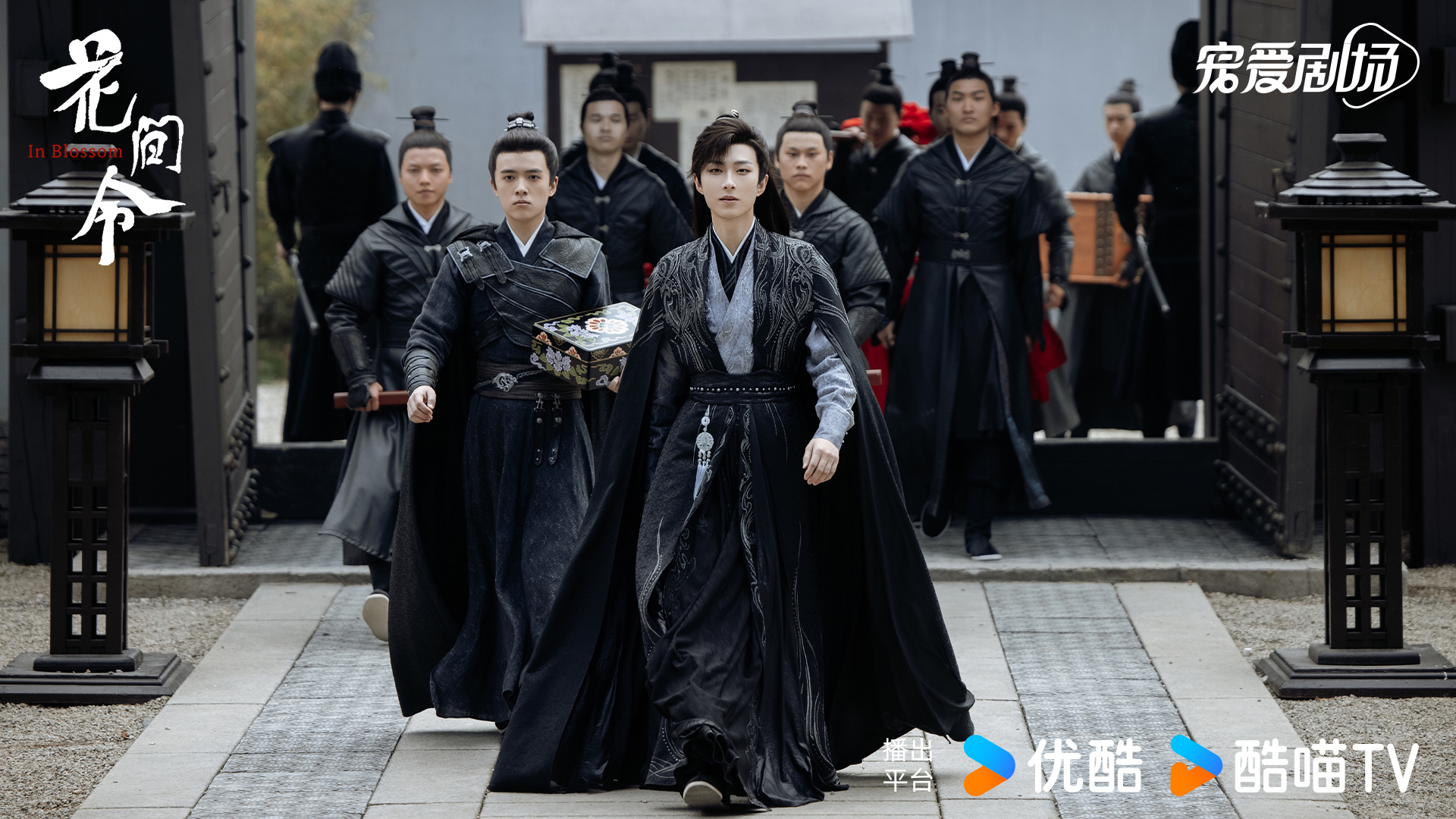
Stills of "Flower Order"
The Paper: You have mastered the ancient puppet genre, but do you want to change the track for your next project?
Zhou Ji: We did not deliberately plan the track. In the case of "Flower Room Order", it was Teacher Yu who first found the love and inspiration, and it had little to do with the genre. Of course, as a new team, it may be easier to continue working on ancient puppets, which can be regarded as some endorsement. But we still hope to do more things that we haven’t tried yet.
The next project is similar to "Flower Room Order" in some aspects. It is also based on a typed narrative to solidify the emotional destiny of the characters. It has a strong and innovative plot, but it will tightly grasp the characters and emotions. But it is indeed not the ancient puppet track anymore.
Yu Hailin: Yes, our next plan is to make a trilogy about the Song Dynasty. The genre and style of each part are very different. We are not deliberately pursuing innovation. As mentioned before, I am driven by passion, and I happened to meet These three stories.
The Paper: But the more successful production teams on the market now usually have their own very clear positioning and track, so that they can survive in the long term against the cycle. As a very young team, "Bamboo Di Pictures" has considered whether it needs a label or a main track so that the market and industry can recognize you?
Zhou Ji: If I have to have a label, at this stage I hope it’s “original”. As mentioned at the beginning, the positioning of “Bamboo Flute” is to serve creators. At different stages, they will have different thinking and different creative preferences, so we will explore various genres to feel the possibility of self-expansion and change. Come with pleasure and return with pleasure. We hope that the creative process will be so pleasant and full of hope. Of course, if one day they want to do an adaptation project, I will definitely do my best to support it unconditionally.
The Paper: Or do you want to create works that are highly related to your own growth stage?
Zhou Ji: We all make original works, why not make something we like?
